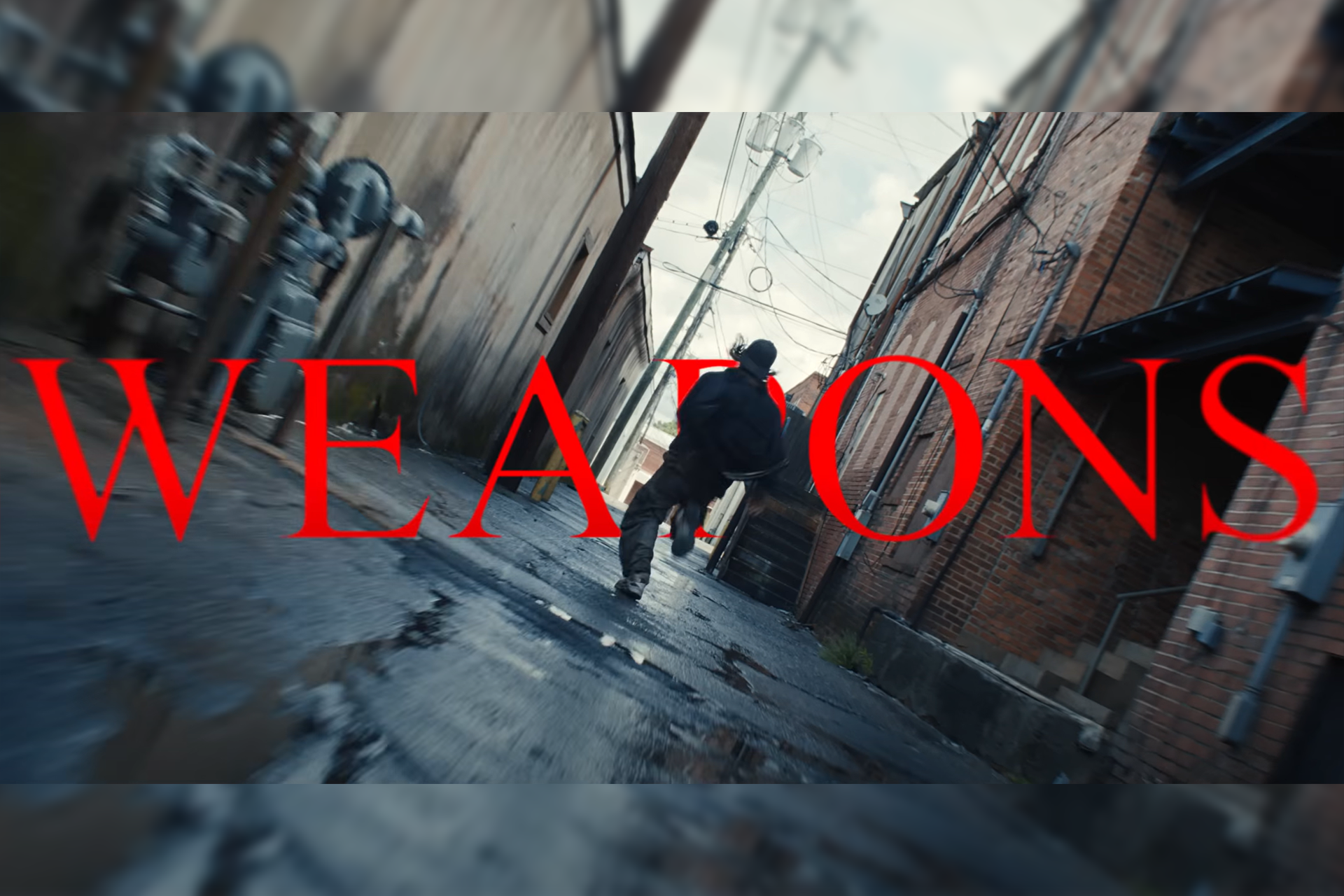In the back of my mind are vivid memories of 2016, when inexplicable clown sightings terrorized suburbia.
Grainy footage popped up online of creepy clowns on the street, clowns on sidewalks, clowns standing still before chasing cars. Maybe the clown is your neighbor? Could the clown be in your home? You should check. In complacency with suburban life, did our imaginations perceive a threat to our peace as clowns?
Clown imagery flickers in the background of director Zach Cregger’s 2025 film Weapons, where we learn why 17 third graders disappeared from their homes on the same night. It prods at not only the memory of the clowns but the terror of shattered normalcy. Omnipresent ring cameras capture terrifying moments of children running instead of monitoring their homes.
As the kids’ teacher Justine, played phenomenally by Julia Garner, becomes the prime suspect in their disappearance, there’s an increasing, pressurized dread about an intruder in this idyllic town.
Questions immediately arise about Justine and what she may be hiding, but the film worries little about the why of its characters’ motives or the origin of its villains, instead shaping its thesis on the various ways we process sudden tragedy.
[Rap duo Clipse are out for blood on ‘Let God Sort Em Out’]
Cregger opened up about how he wrote the script following the passing of a close friend. From this, it’d be easy to label Weapons as elevated horror, in addition to its use of more obvious symbolism for tragic events.
Cregger’s slow-burn pacing, piecing together multiple character points of view, successfully fleshes out a lived-in neighborhood. Taking place a month after the disappearance, every character — from Josh Brolin’s anguished father Archer, to Benedict Wong’s doomed school principal Marcus — feels settled in their stages of grief around the disappearance, even if some are unwilling to move on.
Yet when it marries its intertwining threads for a cathartic but abrupt conclusion, Cregger doesn’t clarify if we’ve achieved any resolutions to grief.
Before all this, we watch Justine descend into alcoholism as upset parents threaten her well-being. Archer grows obsessed with defying the police investigation and the remaining student can’t begin to process his trauma while he holds onto a secret. It’s intriguing. It’s also disturbingly funny.
Weapons maintains a degree of separation with comedic timing, not permitting typical horror cliches — creepy clown makeup, Conjuring-esque hallway chases, ominous kid doodles — to remove a genuine fear factor or sincerity to its protagonists.
In one heartbreaking scene, Archer attempts to communicate with his son in a dream and latches onto clues of where he’s located, ending with an impassioned plea for him to come home before being jumped by the maybe-clown. But once he wakes up, his over-the-top reaction cuts the tension.
[‘The Shrouds’ paints a scattered, perceptive portrait of grief in the age of AI]
There’s opportunities for Cregger to go full scorched earth in parody and rev up the comedy, asking various questions without any desire to answer them. Why 2:17 a.m.? Why kids in the first place? What’s the motive for our villain? Does it matter? The suspense feels just like re-watching those clown videos again.
Look at the outlandishness the film teases, of high speed car rides and people sprinting with outstretched, V-shaped arms. We might spend more time than needed with an odd couple buddy cop dynamic, but it’s fun to watch their thrilling high-speed cop chase, especially when the camera shares the car and sidewalk’s frenzied perspective.
In a personal favorite scene, Justine tries to speak to her last remaining student Alex, played by Cary Christopher, as a means to help her own grief. She falls asleep in her car waiting to catch him while a zombie-type figure teeters toward her vehicle with comically large scissors.
Right when she notices Justine in the window, she pauses, then hobbles out of the frame. It’s silly comedic timing, until we hear the car door unlock.
Even within a feverishly violent third act, my theatre screamed with laughter. Audience attention is worth gold nowadays with people constantly glued to their phones, yet an antsy member would struggle to not find joy amid the thrills Weapons delivered.
Clocking in at slightly above two hours, it finds the space to grow increasingly aware of its outlandishness despite some of its chapters lingering too long on setting up its bizarre ending.
But refusing to be caught up in the comedic frenzy is a solemn reminder that tragedy can happen without reason, leaving people to act in upsetting ways. After my screening, it set in that I can never be sure what’s just beyond my porch lights.



